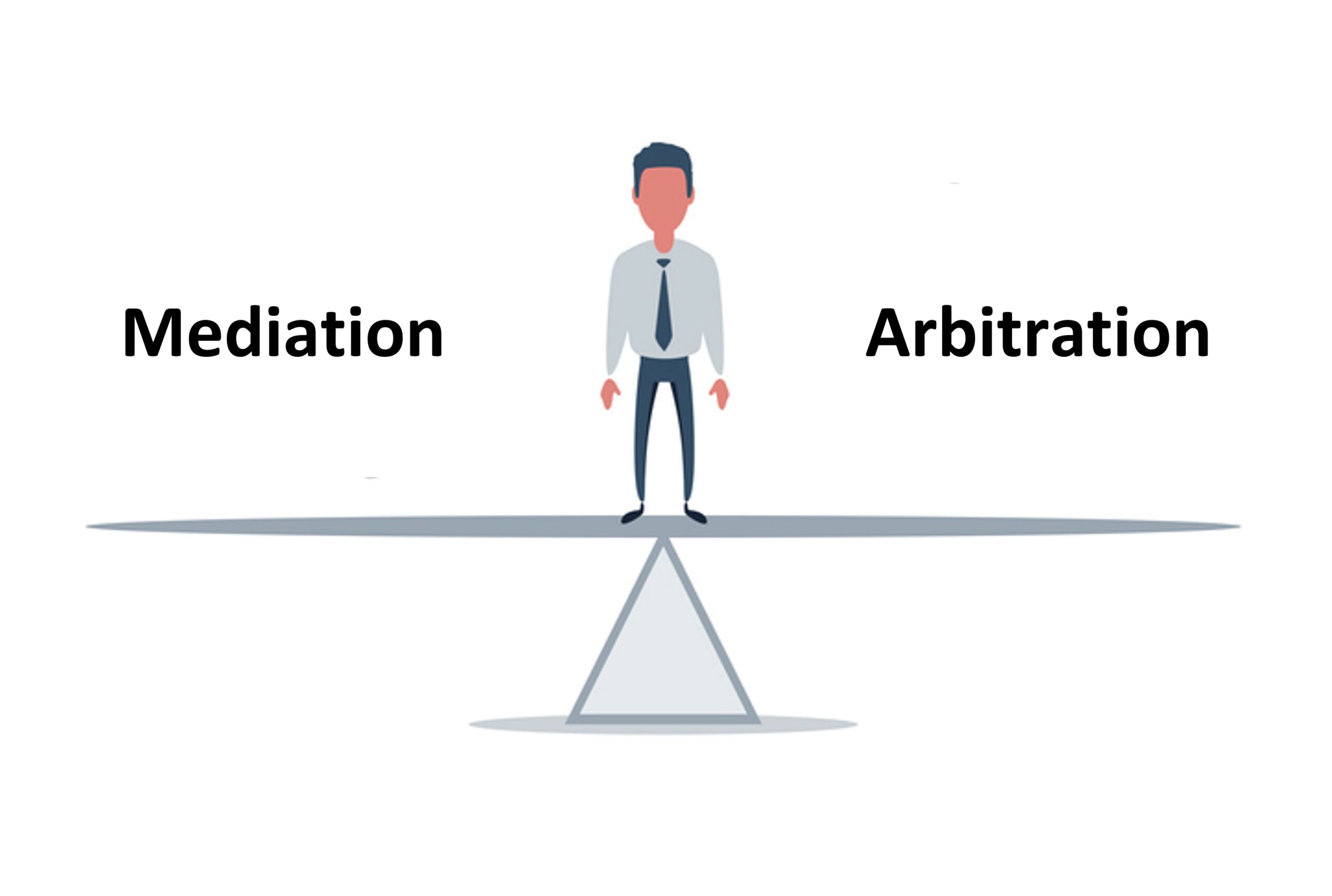
Arbitration and Mediation: Key Methods of Alternative Dispute Resolution
Table of Contents
ToggleWhat is Arbitration?
Arbitration is a formal method of resolving disputes where an impartial third party, called an arbitrator, hears the case and makes a binding decision. Arbitration is often chosen when parties want a faster resolution than the courts can provide, but still seek a legal process with a defined structure and enforceable outcomes.
In arbitration, the parties involved agree beforehand (usually through a clause in a contract) that any disputes will be resolved through arbitration rather than litigation. This decision is often based on the desire for a quicker resolution or to avoid the complexities and public nature of court proceedings.
How Does Arbitration Work?
-
Agreement to Arbitrate: The parties must agree to arbitrate, often through an arbitration clause in a contract.
-
Selection of the Arbitrator: The parties choose one or more arbitrators who are experts in the field related to the dispute. The arbitrator(s) are impartial and will make a final decision.
-
Arbitration Hearing: Both sides present their arguments and evidence before the arbitrator. This process is less formal than court proceedings, but it still follows structured rules.
-
Arbitrator’s Decision: After reviewing the evidence, the arbitrator makes a binding decision known as an award. In most cases, the decision is final and enforceable in a court of law.
Advantages of Arbitration
-
Faster Resolution:https://tweet-a-beer.com is typically much faster than litigation, as it avoids the delays often associated with the court system.
-
Confidentiality: The process is private, and the details of the case are not made public, which is important for businesses concerned with maintaining their reputation.
-
Expert Arbitrators: Arbitrators are often chosen for their expertise in the specific area of the dispute, leading to more informed decisions.
-
Final and Binding: Once a decision is made, it is usually final and cannot be appealed, providing certainty for the parties.
Disadvantages of Arbitration
-
Limited Appeal Options: The finality of arbitration can be a double-edged sword, as there are limited grounds for appealing the arbitrator’s decision.
-
Cost: Although cheaper than litigation, arbitration can still involve substantial costs, particularly if multiple arbitrators are involved or the dispute is complex.
-
Inflexibility: While faster than litigation, arbitration may not always offer the flexibility that some parties might need in resolving certain types of disputes.
What is Mediation?
Mediation is a less formal, non-binding process in which a neutral third party, known as a mediator, helps the parties involved in a dispute to negotiate a resolution. Unlike arbitration, the mediator does not make a binding decision or impose a solution. Instead, the mediator’s role is to facilitate communication and help the parties reach a mutually agreeable settlement.
Mediation is often used when parties want to maintain their relationship (such as in business partnerships or employment disputes) and seek a collaborative solution rather than an adversarial one.
How Does Mediation Work?
-
Agreement to Mediate: Just like arbitration, parties typically agree to mediate their dispute through a clause in their contract or a mutual agreement after a conflict arises.
-
Selection of the Mediator: The mediator is chosen for their neutrality and expertise in the subject matter of the dispute.
-
Mediation Sessions: The mediator facilitates discussions between the parties, helping them communicate their concerns and interests. The mediator may also propose solutions or creative alternatives to resolve the issue.
-
Settlement Agreement: If the parties reach an agreement, they will draft a settlement agreement that outlines the terms of the resolution. This agreement is legally binding if both parties sign it.
Advantages of Mediation
-
Flexibility: Mediation is highly flexible and can be tailored to the needs of the parties. The process can be faster and more informal than arbitration or litigation.
-
Confidentiality: Like arbitration, mediation is private, and the details of the dispute are not made public.
-
Control Over the Outcome: Since the mediator does not impose a decision, the parties retain control over the outcome, which can lead to more creative, tailored solutions.
-
Preservation of Relationships: Mediation is less adversarial than litigation and arbitration, helping to preserve business relationships and avoid long-term conflicts.
Disadvantages of Mediation
-
Non-Binding: Since mediation results in a non-binding agreement (unless the parties reach a formal settlement), there is a risk that one party may not adhere to the terms of the resolution.
-
No Guaranteed Resolution: Mediation may not always result in a settlement. If the parties cannot agree, they may have to proceed to arbitration or litigation.
-
Dependence on Cooperation: Mediation requires cooperation from both parties. If one party is unwilling to negotiate, the process may not be successful.
When Should You Choose Arbitration or Mediation?
The choice between arbitration and mediation depends largely on the nature of the dispute, the relationship between the parties, and the desired outcome. Here are some guidelines:
-
Choose Arbitration if you need a quicker, binding resolution, or if you require the expertise of an arbitrator to make a final decision.
-
Choose Mediation if you want a less formal process with the potential to preserve relationships, and if you seek more control over the outcome of the dispute.
Conclusion
Arbitration and mediation are powerful tools in the world of alternative dispute resolution (ADR), allowing businesses to avoid the expense and time commitment of traditional litigation. Whether you need a binding resolution or a collaborative negotiation, both methods offer flexibility and confidentiality. By understanding the advantages and disadvantages of each, businesses can make informed decisions on how best to resolve disputes efficiently and effectively, protecting both their legal interests and their business relationships.
More Stories
Financial Institution Oversight: Ensuring Stability and Accountability in the Financial Sector
What Is Financial Institution Oversight? Financial institution oversight refers to the regulatory and supervisory activities carried out by governmental and...
Understanding Business Loan Laws: What Every Entrepreneur Should Know
Navigating the world of business loans can be tricky, especially if you’re not familiar with the laws and regulations that...
A Comprehensive Guide to Financial Regulations: Ensuring Stability and Integrity in the Financial System
What Are Financial Regulations? Financial regulations refer to the rules and standards set by governmental bodies, regulators, and international organizations...
Financial Law Compliance: A Guide to Ensuring Legal Adherence in Financial Practices
What is Financial Law Compliance? Financial law compliance refers to adhering to the laws, regulations, and standards that govern financial...
Secure Crypto Investment: A Guide to Safely Grow Your Digital Wealth
Why Security Matters in Crypto Investment The decentralized nature of cryptocurrencies offers freedom and flexibility—but it also makes investors responsible...
Understanding Banking Law: Foundation of Financial Stability
today’s fast-paced financial world, the importance of Banking Law cannot be overstated. From protecting consumer rights to regulating financial institutions,...







